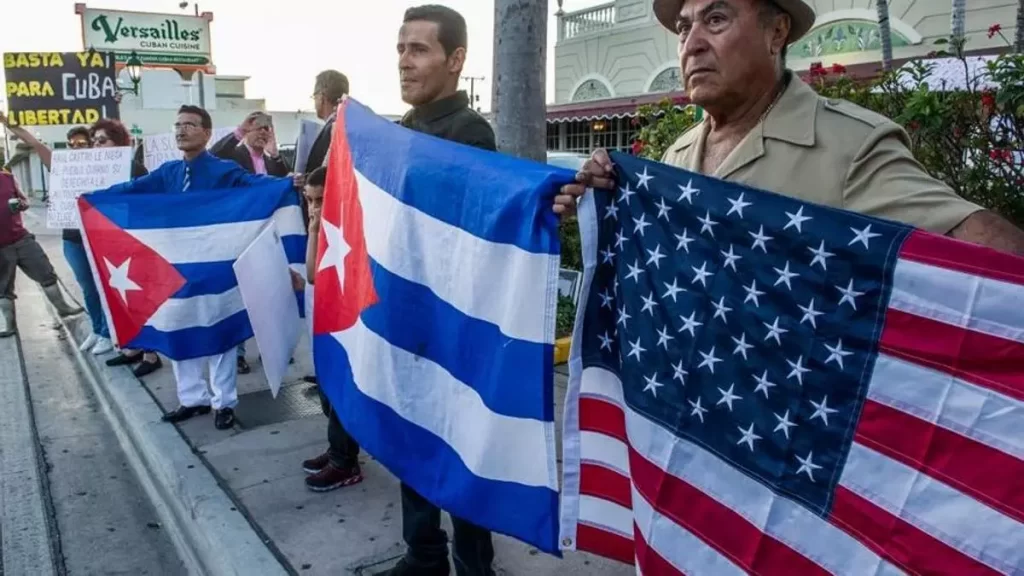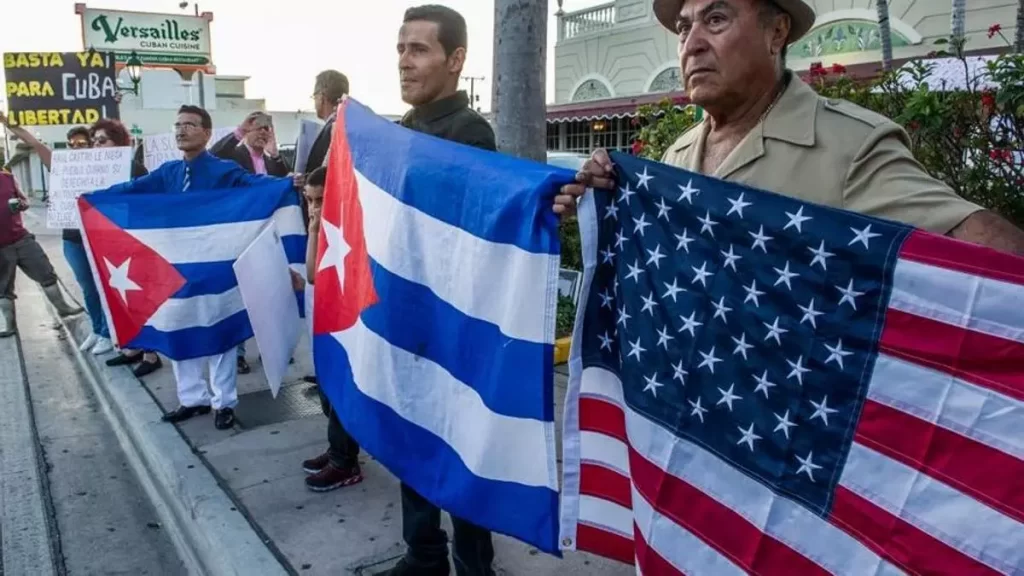The country’s economic crisis ruined one couple’s prosperous business in Havana but Adelina and Luis dream of reopening their cafe one day

14ymedio, José Antonio García Molina, Miami, 7 July 2024 — Adelina arrived in Miami a year ago with her husband and $15,000, the profits from a family business, hoping to rebuild her life in the United States. The 48-year-old Havana resident still has issues pending back home: family, interests, a house, a car. She did not want to burn her bridges or, as she prefers to put it, “close the door.” Though she decided to take advantage of the United States’ humanitarian parole program, for which her son-in-law filled out the paperwork, she feels she is waiting for the “downpour” to clear up. “Things will change in Cuba when people least expect it,” she says.
Abel, Adelina’s son-in-law is 58-years-old and graduated with a degree in economics. He left Cuba in 2002, after the Special Period, and is now a U.S. citizen. “Things were getting bad. I had less and less work. One day a group of friends and I got together and set out on a boat.” His story is typical of many people who left Cuba in those years and later became sponsors. Adelina, who managed to get through one crisis after another, is the other side of the coin.
If the money is there and the paperwork goes through, anyone with a “patron saint” in the U.S. can emigrate.
The Biden administration launched the parole program in January 2023 at the height of the migration crisis. By the end of May, more than 105,000 had benefited from it. The program has since redefined the relationships of those still living on the island and their relatives abroad. If the money is there and the paperwork goes through, anyone with a “patron saint” in the U.S. can emigrate.
The problem, Adelina says, comes later, when someone from Cuba sets foot on American soil. It is not easy to start over from scratch if you are of a “certain age” or to interrupt the lives of your family living in the U.S. For her husband Luis, who is ten years older, the challenges of adapting to a new environment are several times greater.
Luis’ life is split between two cities: Havana, where he left the cafe that he and Adelina ran together, and Miami, where he works as a custodian in a condominium. For her part, his wife is a cashier at a supermarket in Doral.
“State-run cafes were few and very bad,” recalls Adelina
It was hard for both of them to leave the cafe behind. When they opened it in 2010, self-employment was synonymous with prosperity. “State-run cafes were few and very bad,” Adelina recalls. They saw an opportunity and took it. Initially, they sold breakfast items and some snacks. Everyone in the neighborhood was a customer. “We were expanding. There was an area in the house with a cement floor but no roof. We built a little wall around it, added an entrance, and bought s


